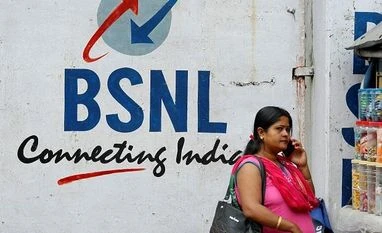The majority of BSNL’s upcoming 125,000 4G towers will be installed across rural areas, which are yet to see 4G coverage, said officials.
The strategy of placing new towers in deeper and less-serviced areas remains BSNL’s biggest bet in its plan to actively compete in the 4G subscriber space, they added.
"We have undertaken detailed studies of unserviced and underserviced areas nationwide. There are still large chunks of the map that are yet to get reliable 4G support. BSNL will fill those gaps,” a senior official said.
BSNL is bringing 4G services years after the three private telecom service providers — Reliance Jio, Bharti Airtel and Vodafone Idea — rolled it out.
BSNL has been instructed by the department of telecommunications (DoT) to quickly roll out 4G services nationwide and gain users. This is to shake off its image of a lagging government service, multiple officials added. Despite the ongoing 5G race, telcos continue to expand in the 4G segment. For instance, Jio has approximately 532,000 4G LTE network base stations and claims to cover more than 95 per cent of India’s population.
Meanwhile, Vodafone Idea recently said it shut down 19,000 3G sites during the second quarter while adding 8,500 4G sites.
Over 24,600 uncovered villages, mostly located in remote areas, are expected to get BSNL’s 4G service by December 2023, the DoT had said earlier this week.
DoT also said it is currently running several schemes that have been providing telecom infrastructure and connectivity in areas having a sizable tribal population.
Another official said cost rationalisation has been prioritised and BSNL plans to update the same 4G towers to 5G later.
The company is working on 5G technology simultaneously. It will be ready with a full 5G rollout within a few months.
BSNL had earlier missed its deadlines multiple times on this account.
The latest deadlines are January 2023 for rolling out 4G services and August 2023 for 5G services.
4G deal soon
"Contract for the Rs 26,821-crore 4G equipment deal will soon be awarded,” a senior DoT official said.
The amount will be utilised for installing 100,000 towers for BSNL-MTNL’s 4G network.
The deal will also include installation of an additional 25,000 towers. It would be for various government-funded projects in Left-wing extremism (LWE) areas, Lakshadweep, and 4G saturation projects. The final deadline for submitting bids for the deal had been extended to November 18.
The consortium of Tata Consultancy Services and the Centre for Development of Telematics (C-DOT) is expected to be the lone bidder. It is the only bidder to have successfully submitted proof of concept.
BSNL will be using a 4G core developed indigenously for the first time by C-DOT.
The core is the heart of a mobile network, establishing reliable, secure connectivity to the network for end-users and providing access to its services.
The core domain handles a wide variety of essential functions in the mobile network. These include connectivity and mobility management, authentication and authorisation, subscriber data management and policy management, among others.
The consortium will also support BSNL with a made-in-India 5G Radio Access Network (RAN). RAN allows the disaggregation of network equipment components. It enables a telecom company to source hardware and software from different vendors for network building.
Earlier this year, BSNL had placed an order with TCS to procure equipment for around 6,400 sites. These would be deployed on the 2100 MHz and 900 MHz frequency bands.
Unlock 30+ premium stories daily hand-picked by our editors, across devices on browser and app.
Pick your 5 favourite companies, get a daily email with all news updates on them.
Full access to our intuitive epaper - clip, save, share articles from any device; newspaper archives from 2006.
Preferential invites to Business Standard events.
Curated newsletters on markets, personal finance, policy & politics, start-ups, technology, and more.
)